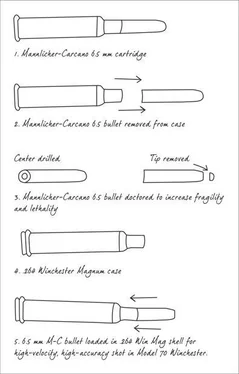Stephen Hunter - The Third Bullet
Здесь есть возможность читать онлайн «Stephen Hunter - The Third Bullet» весь текст электронной книги совершенно бесплатно (целиком полную версию без сокращений). В некоторых случаях можно слушать аудио, скачать через торрент в формате fb2 и присутствует краткое содержание. Жанр: Триллер, на английском языке. Описание произведения, (предисловие) а так же отзывы посетителей доступны на портале библиотеки ЛибКат.
- Название:The Third Bullet
- Автор:
- Жанр:
- Год:неизвестен
- ISBN:нет данных
- Рейтинг книги:5 / 5. Голосов: 1
-
Избранное:Добавить в избранное
- Отзывы:
-
Ваша оценка:
- 100
- 1
- 2
- 3
- 4
- 5
The Third Bullet: краткое содержание, описание и аннотация
Предлагаем к чтению аннотацию, описание, краткое содержание или предисловие (зависит от того, что написал сам автор книги «The Third Bullet»). Если вы не нашли необходимую информацию о книге — напишите в комментариях, мы постараемся отыскать её.
The Third Bullet — читать онлайн бесплатно полную книгу (весь текст) целиком
Ниже представлен текст книги, разбитый по страницам. Система сохранения места последней прочитанной страницы, позволяет с удобством читать онлайн бесплатно книгу «The Third Bullet», без необходимости каждый раз заново искать на чём Вы остановились. Поставьте закладку, и сможете в любой момент перейти на страницу, на которой закончили чтение.
Интервал:
Закладка:
Influenced by his older brother, little Lee, like many a small man who dreams of toughness, joined the Marine Corps immediately out of high school (from which he did not graduate). Like everything he attempted, it came to nothing. The marine years were wholly undistinguished, and anyone who trusted him to guide an airplane to its landing strip – his official job – must have had rocks in his head. I saw that the marines didn’t let him do much of that sort of thing, as they always had him on noncrucial duty. Somehow he managed to shoot himself in the arm. What a dimwit!
It was in the service where he first proclaimed himself a Communist, to the irritation of all around him in his various postings. You wonder why some fellow PFCs didn’t beat the hell out of him and spare the world the tragedy that ensued. It’s one of the few times the United States Marine Corps has failed in its duties. It won the Battle of Iwo Jima, but it lost the Battle of Lee Oswald! And once he was out, his first move – another hastily considered crusade – was to defect to the Soviet Union. Our first notice of him came via the State Department after he’d gotten into Russia on a student visa and refused to leave. Sensibly, the Russians didn’t want him either – nobody ever wanted him! – and for a while State and KGB fought to see who would inherit him as a consolation prize. He spent two and a half years in the Soviet Union, mostly in an electronics plant in Minsk, mastering the intricacies of cheesy transistor-radio assembly. He met and married a young woman who seemed quite attractive in the photo; I wondered in my study that night if the poor gal knew what a damaged package she’d hooked up with.
He burned out in Russia and managed to talk his way back into the United States. I am well aware that some in the conspiracy community – “conspiracy community,” God, what an appalling concept! It was both loud and wrong for half a century! – have maintained that the CIA’s fingerprints are all over this strange sojourn. Good God! The only fingerprints on it were mine, and I knew paper didn’t record fingerprints, so I was safe. What I saw was what real life produces, as opposed to the dark master planning of the spy conspiracy believers: the shaggy, shapeless, pilotless, planless bumble of luck, circumstance, and opportunity, as this weasel of a man tried to get two giant bureaucracies to pay him the slightest bit of attention. Agh, you could feel their lack of enthusiasm in the slow grind of their cogwheels as, eventually, while the long dreary months passed, this nobody was allowed to reclaim citizenship in a country he loudly despised.
From that point on, we got a new narrator, a much beleaguered FBI agent named James Hotsy, who inherited Lee – I will call him Alek from now on, for that is his Russian nickname, and Marina and I both called him that – when the fellow came back to the United States from Russia. He was known to the Bureau as a “suspicious person,” given his well-documented love affair with the reds. Poor Hotsy, of the Dallas field office, overworked and underloved, had Alek added to his immense caseload, and it was my privilege to read his reports in photocopy, because at that low level of security, the two agencies happily shared data. Hotsy’s picture of him more or less confirmed mine, although the hostility he received after Alek’s return added a particularly unpleasant new pathology, the chronic whine. Hotsy could find nothing he’d done that was illegal, only in poor taste, which should be a crime, I’ve always believed, but who listens to me on these matters? Hotsy’s intensity picked up when he discovered that Alek had been to Mexico City in late September and visited the Cuban interest section and the Soviet embassy, and soon he was interviewing Marina, her friend (but never Alek’s) Ruth Paine, and anyone else who had knowledge of or insight into Alek. Again, he could come up with nothing substantial, because Oswald himself was not substantial. He was, as they say in Texas, all hat and no cattle. Nobody had any need for him, not even Marina, for Mrs. Paine passed on to Special Agent Hotsy the bad news that Marina frequently displayed bruises on her arms or swelling around the eye. Alek was up to his tricks again.
I do not have one here before me, as I sit in the sunlight on the veranda, scribbling and merrily riding the vodka express to the amazement of the servants, watching the slow progress of shadow across the far meadow, awaiting a call on my satellite phone that will inform me whether my current threat is finished or has grown more complicated, but I do know that at that time I had a photo of Alek.
That face was soon to be burned into the consciousness of the world. I expect it will never be forgotten. At the time, who could know, who could anticipate? What I saw was American working-class sui generis , remarkable in its unremarkablity. It was an old shot taken by a newspaper when our self-proclaimed Communist hero (Ma, call the papers!) returned from Russia to proclaim the glories of Marxism but the folly of communism (only a Trot could appreciate the nuances; it’s unlikely Alek did). The camera reveals truths, things that Alek did not know about himself and would not learn. The thickness of his nose, his most prominent facial landmark, revealed or at least represented his pugnacity. He had a thickness to him in many respects, both physically and mentally, a kind of fixation on a goal or object from which he could not be stirred. His eyes were beady and small and squinty, and any Hollywood casting director would see him as a Villain No. 2, a minion who administered the beatings or the knifings but had no grasp of Mr. Big’s vision and simply took it on trust. He had a small mouth that gave him an unattractive piscean quality, his face somehow “pointed” as it reached its end point in the surly orifice surrounded by thin lips. His receding hairline and overbroad forehead seemed to suggest the same motif, and all of these features together created a typology, as amplified by the perpetual shroud or grimace of annoyance he wore. He looked exactly as he was: surly, obstreperous, self-indulgent, charmless. You knew he would be tricky to deal with, to command; he would be a resenter, a creep (a wife beater!), a natural traitor, an obdurate whiner, a too-quick-to-measure quitter. I don’t know if he was a little monster because he looked like a little monster or he looked like a little monster and so he became one. I doubt if any of his three thousand chroniclers do either.
In any event, I stared at that picture, committing its nuances to memory. Sometimes a man in life can look so unlike his photo, you can hardly believe one is the record of the other. I sensed with Alek this would not be a problem and that when I saw him first in the flesh, I would recognize him right away. I can remember lying in bed, listening to Peggy’s even breathing, to the night rush of wind, and knowing that my boys were down the hall as secure as possible with futures fixed before them, and thinking of little Alek, pawn and creep, lynchpin and sucker, upon whom the weight of my plan would pivot, and I hoped he was up to it.
That was when I realized, that very night, he wasn’t.
It turned on shooting.
Alek was a “trained marine marksman” – whatever that meant, and I suspect, in those dreary peacetime years, not much – yet he had missed a target, according to news reports, who sat at a desk forty feet away, with a rifle that had a telescopic sight! Good God, even I could have made that shot! I realized that shooting wasn’t just shooting. He had done his rifle work in the marines with that old warhorse, the M1 Garand rifle, a heavy, steady, accurate semi-automatic that had served from the halls of Montezuma to the shores of Tripoli with distinction. He could not have had a Garand rifle at his disposal in Texas for his try at the general. He’d called his gun “An Eye-Tie [?] Mannlicher-Carcano six-five,” a circumlocution so baffling that our poor typist had no idea that “Eye-tie” was argot for “Italian.” If it was Italian, it was probably some piece of surplus junk with a squishy trigger and a vino-swilling peasant’s intrinsic precision, which is to say none at all, and that would be his weapon of choice, and ours too, as it was linked to him by paperwork, witnesses, and circumstance, for the job I had in mind. Then there was the larger issue of incompetence. He had failed at everything he’d ever tried, and this meant part of him expected failure, and the expectation became the father of the event. Could I trust him? Could I risk my whole career and good name, to say nothing of a long stay in a Texas penitentiary, on this idiot? It had to be clean, smooth, crisp, efficient, professional, not a bumbling, staggering mass of twitches and mistakes.
Читать дальшеИнтервал:
Закладка:
Похожие книги на «The Third Bullet»
Представляем Вашему вниманию похожие книги на «The Third Bullet» списком для выбора. Мы отобрали схожую по названию и смыслу литературу в надежде предоставить читателям больше вариантов отыскать новые, интересные, ещё непрочитанные произведения.
Обсуждение, отзывы о книге «The Third Bullet» и просто собственные мнения читателей. Оставьте ваши комментарии, напишите, что Вы думаете о произведении, его смысле или главных героях. Укажите что конкретно понравилось, а что нет, и почему Вы так считаете.












